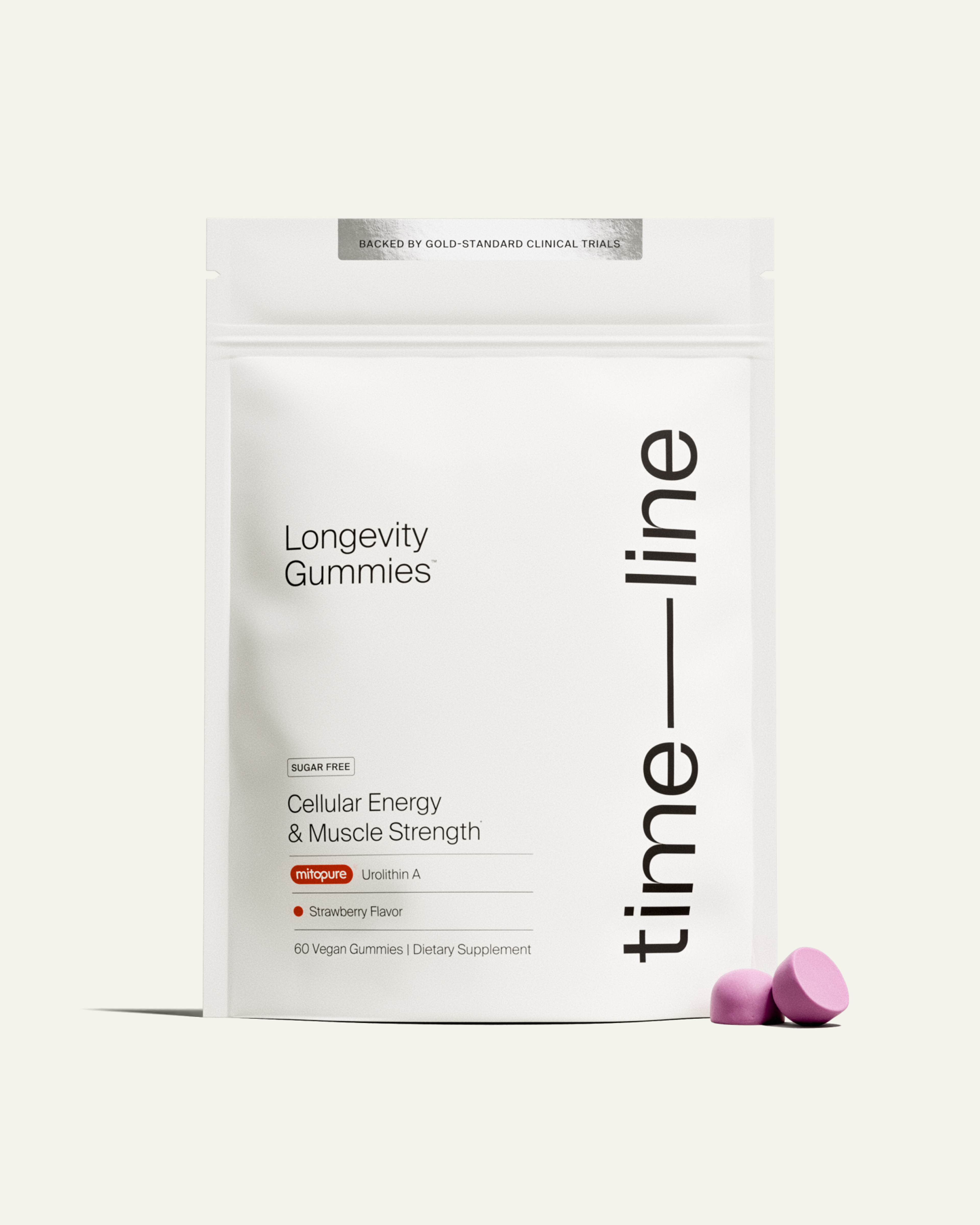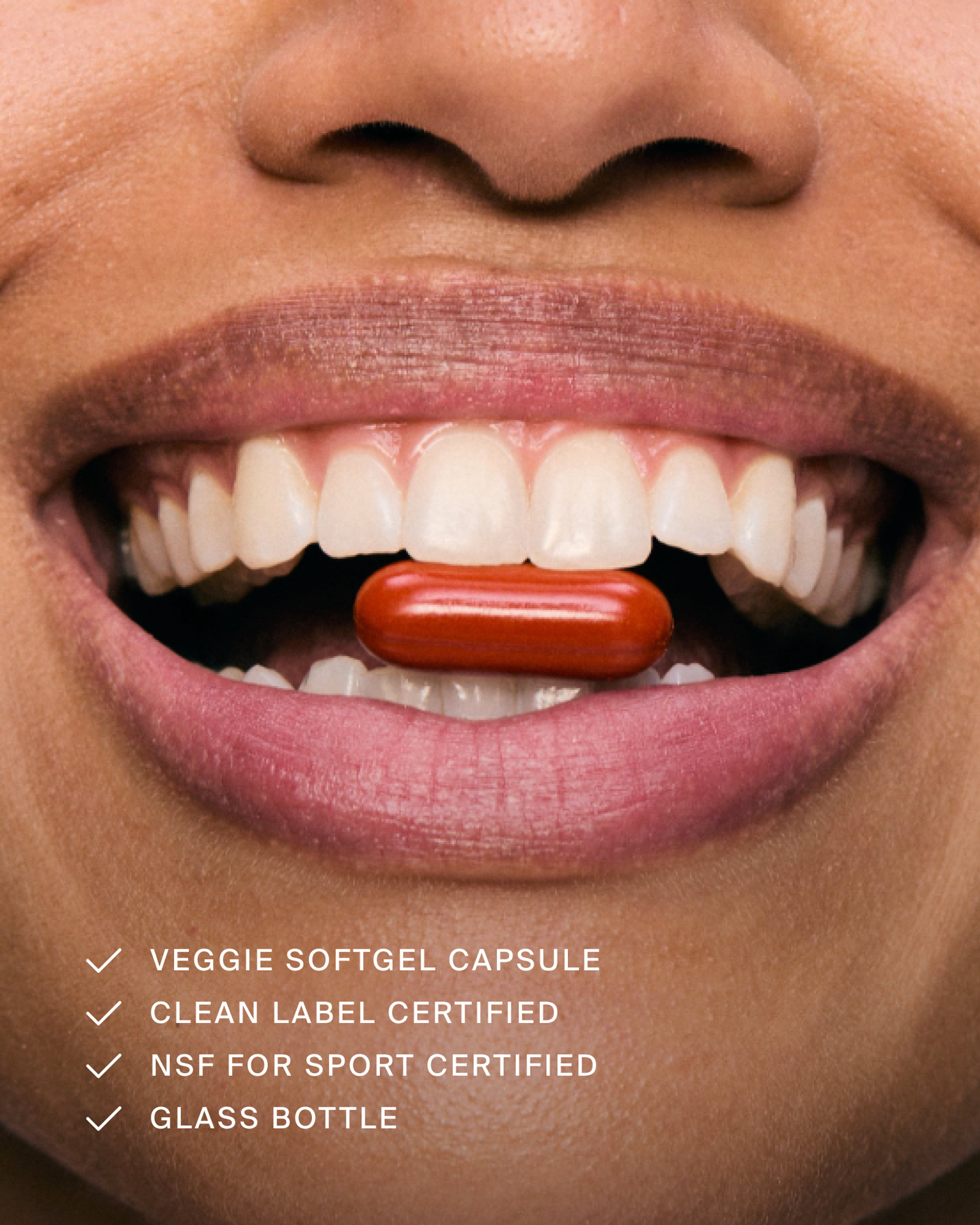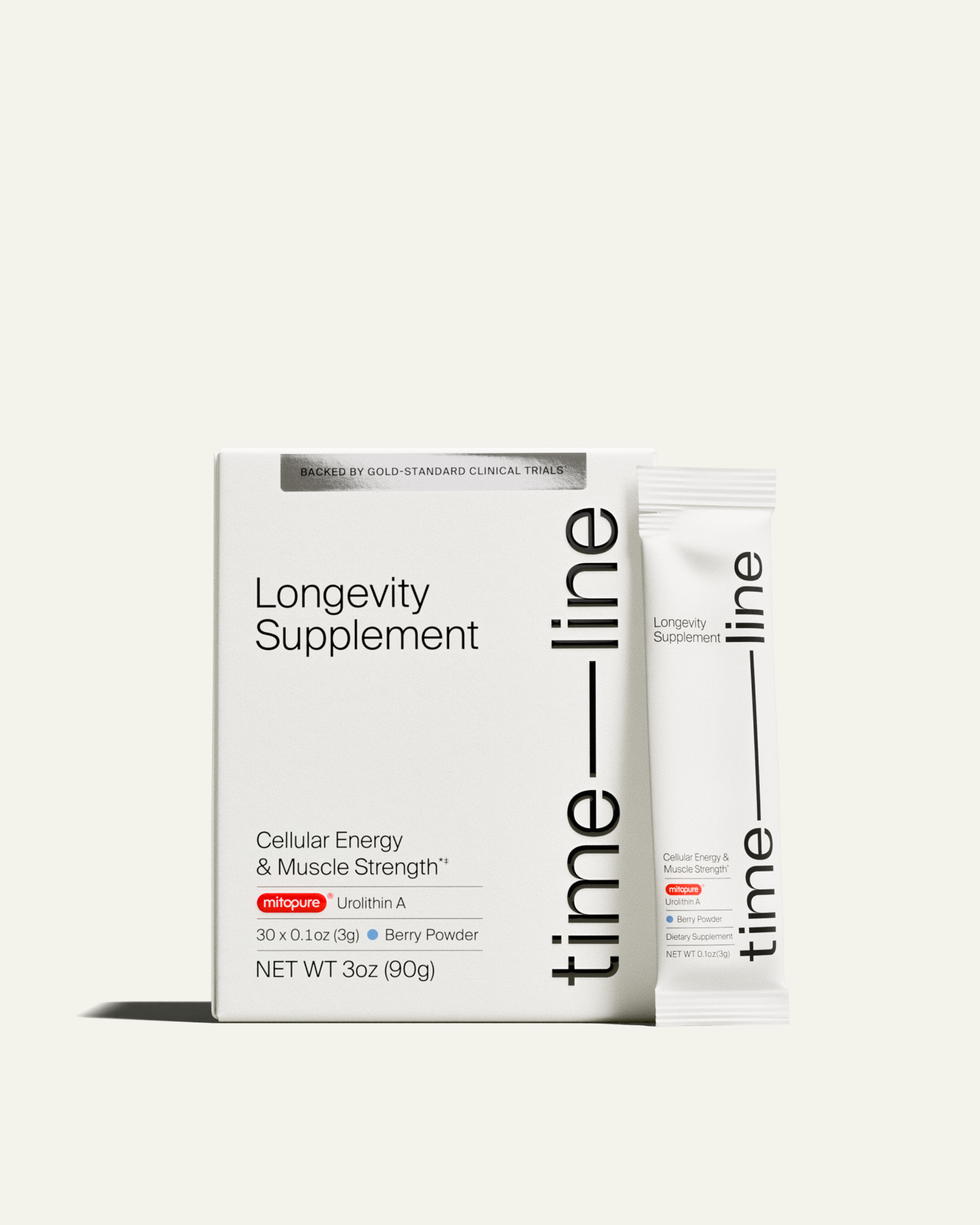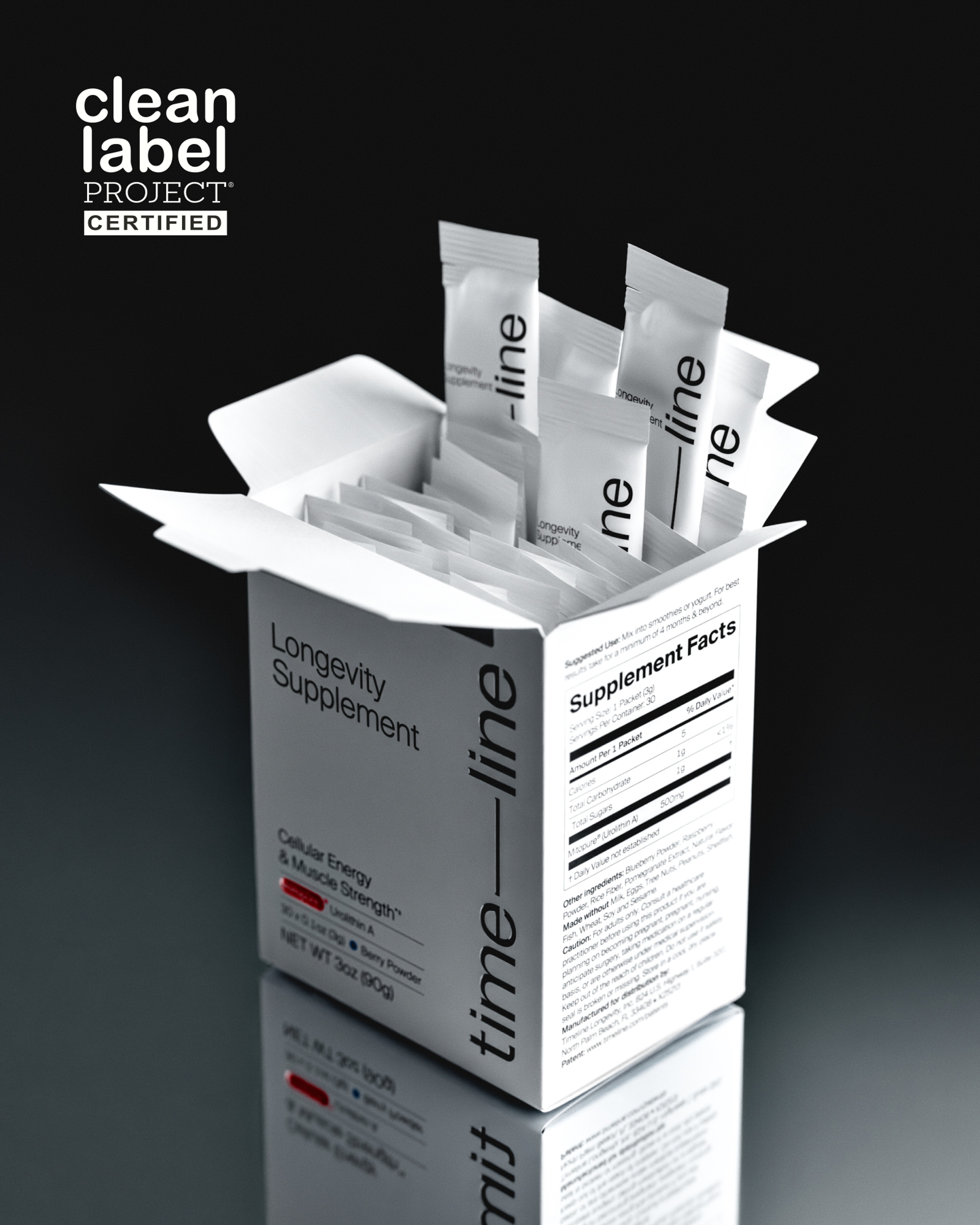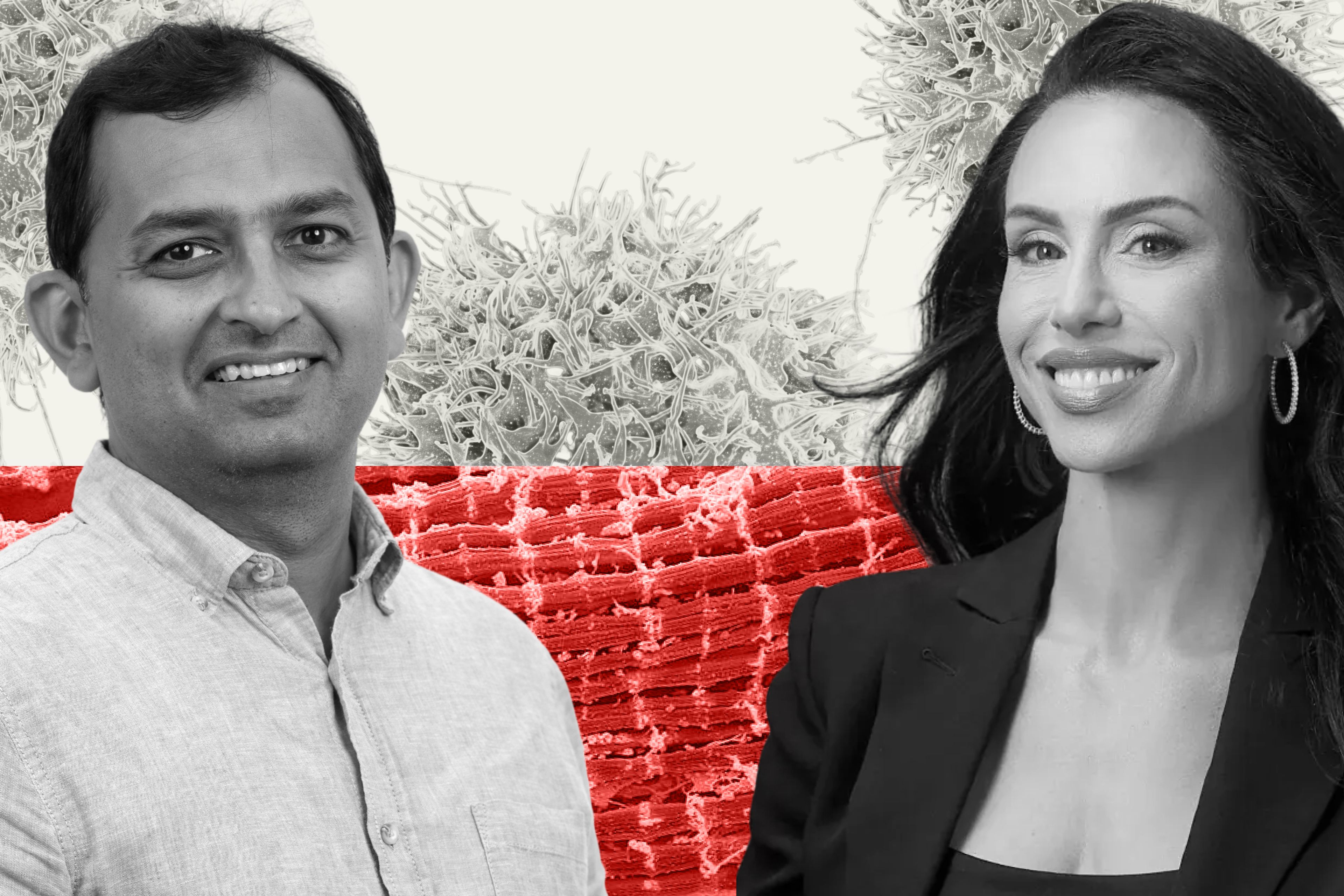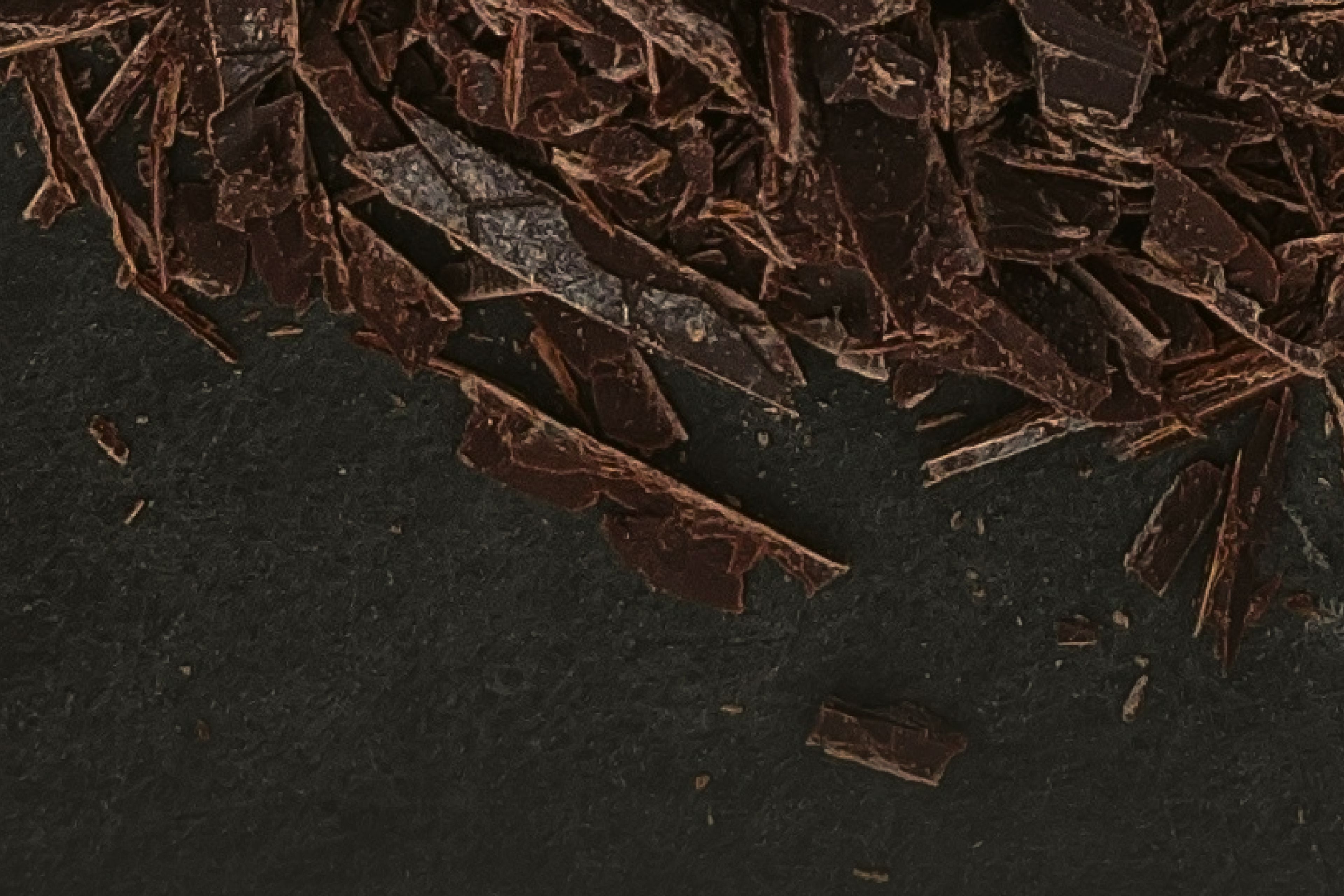Celebrating Longevity Month: Expert Tips for Healthy Aging
Celebrate Longevity Month with expert insights on muscle, skin, gut, and immune health, plus science-backed tips to age better every day.
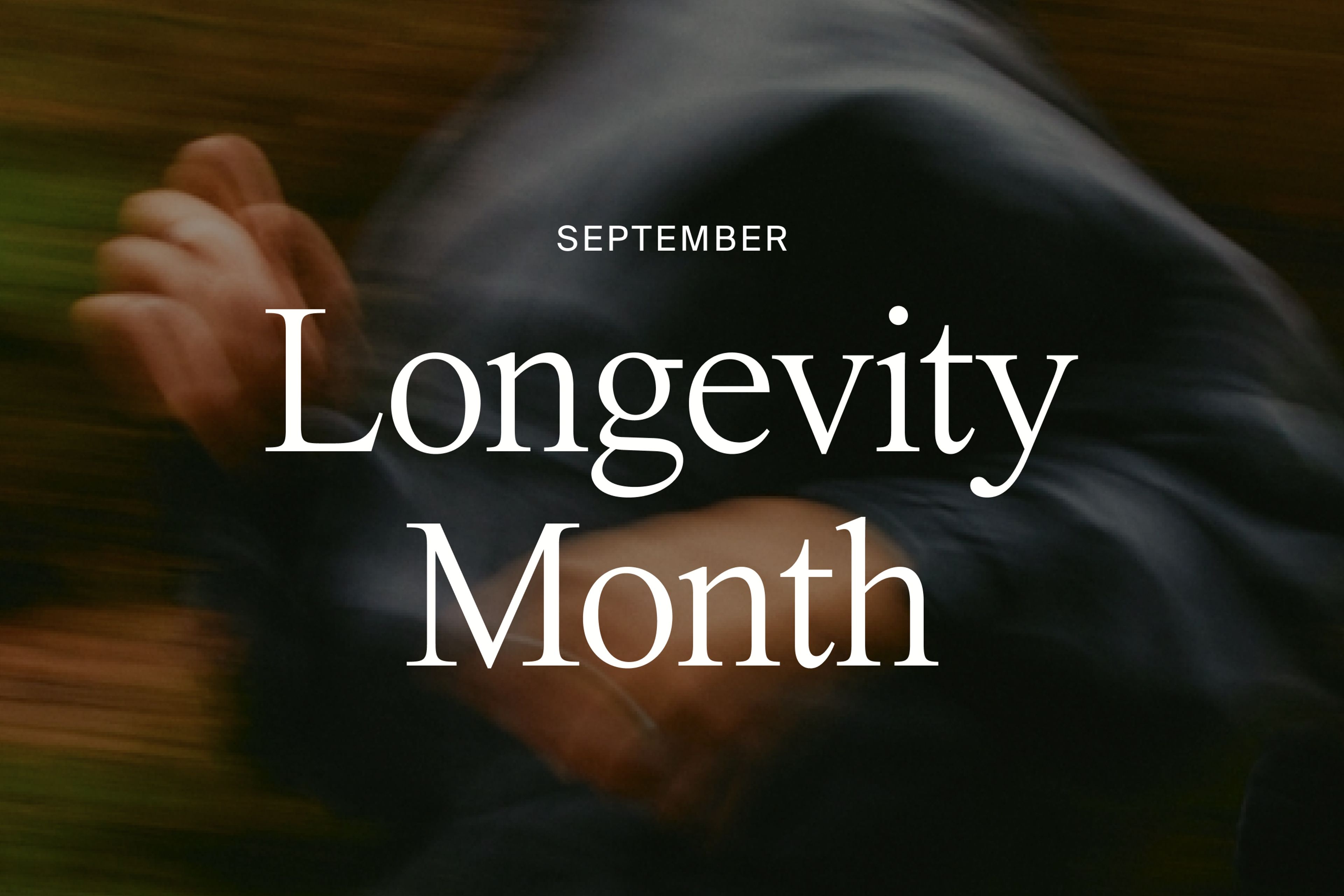
What to know
Longevity Month is a celebration of living better, not just longer, with a focus on simple daily habits that build resilience and vitality.
Our longevity experts share their science-backed tips to help you age better.
Mitochondrial health is foundational to healthy aging. Supporting your cells’ powerhouses can improve strength, energy, recovery, and resilience across the body.
Muscle, skin, gut, and immune health are key indicators of how well we age. Each plays a unique role in longevity, and all benefit from daily healthy habits.
Mitopure® is clinically proven to renew mitochondria and support healthy aging.
All of us are aging, every day. It means you are living, growing, and experiencing life. And, when approached with intention, getting older becomes something to embrace, not fear.
September has long been recognized as Healthy Aging Month. But at Timeline, we believe it’s time to reimagine it. That’s why we’re proud to launch Longevity Month, a new approach to the conversation around aging well.
Our holistic approach to longevity recognizes that how you eat, move, sleep and even think all matter. The seemingly small habits you practice every day — from movement and nutrition to gratitude and reflection — add up over time.
Longevity is not just about living longer. It’s about living better — with more good years to spend with the people you love. That’s why this month, we’re spotlighting expert voices from our longevity community who are leading the way in redefining healthy aging.

Mitophagy event captured in an electron microscope.
Cellular and Mitochondrial Health: The Next Frontier in Longevity
At the foundation of healthy aging lies the health of the trillions of cells in our body. At the heart of every cell are the mitochondria, tiny powerhouses that produce the energy needed for every bodily function, from powering muscles, organs, and skin to fueling our brain and supporting immunity. As we age, mitochondrial efficiency naturally declines, contributing to fatigue, slower recovery, and increased vulnerability to disease.
By supporting mitochondrial health, we can help our cells function better, which in turn supports the health of every system in the body. This emerging area of research suggests that when we target longevity from the inside out, starting with our cells, we have the potential not only to extend lifespan but also to improve healthspan. One clinically studied way to do this is with Urolithin A, the active ingredient in Mitopure®, which has been shown to renew mitochondria and help them work better as we age.
With that foundation in mind, let’s hear from our experts as they share their top tips for supporting healthy aging and building a longevity-focused lifestyle.

Dr. Gabrielle Lyon: Muscle as the Organ of Longevity
For Dr. Gabrielle Lyon, muscle is far more than strength and aesthetics — it’s a powerful driver of whole-body health. Dr. Lyon is a board-certified physician and New York Times bestselling author. As the founder of the Muscle-Centric Medicine® movement, she knows how important muscle is for longevity.
“As we age, muscle mass and strength naturally decline by one to two percent per year after age 50,” she explains. “What many people don’t realize is that muscle isn’t just about aesthetics — it acts as an endocrine organ by releasing myokines—small proteins that signal throughout the body to regulate various functions, including metabolism, immune response, and inflammation.”
Her prescription for protecting muscle health:
- Nutrition: Aim for at least 1 gram of protein per pound of your ideal body weight daily, with a minimum of 30 grams at both your first and last meals.
- Training: Get 150 minutes of moderate-to-vigorous exercise per week, including 3–4 days of resistance training and one HIIT session.
- Supplementation: “Urolithin A, the active ingredient in Mitopure®, supports muscle strength and endurance by enhancing mitochondrial renewal. I take 500–1000 mg daily and consider it a game-changer for healthy aging.”
Dr. Lyon shares that “Mitopure brings us closer to that ideal by supporting muscle function in a way that no other supplement can.” Backed by multiple human trials, it has been shown to improve cellular health, optimize mitophagy, and enhance muscle performance, which is why it is a top recommendation for her.[1]
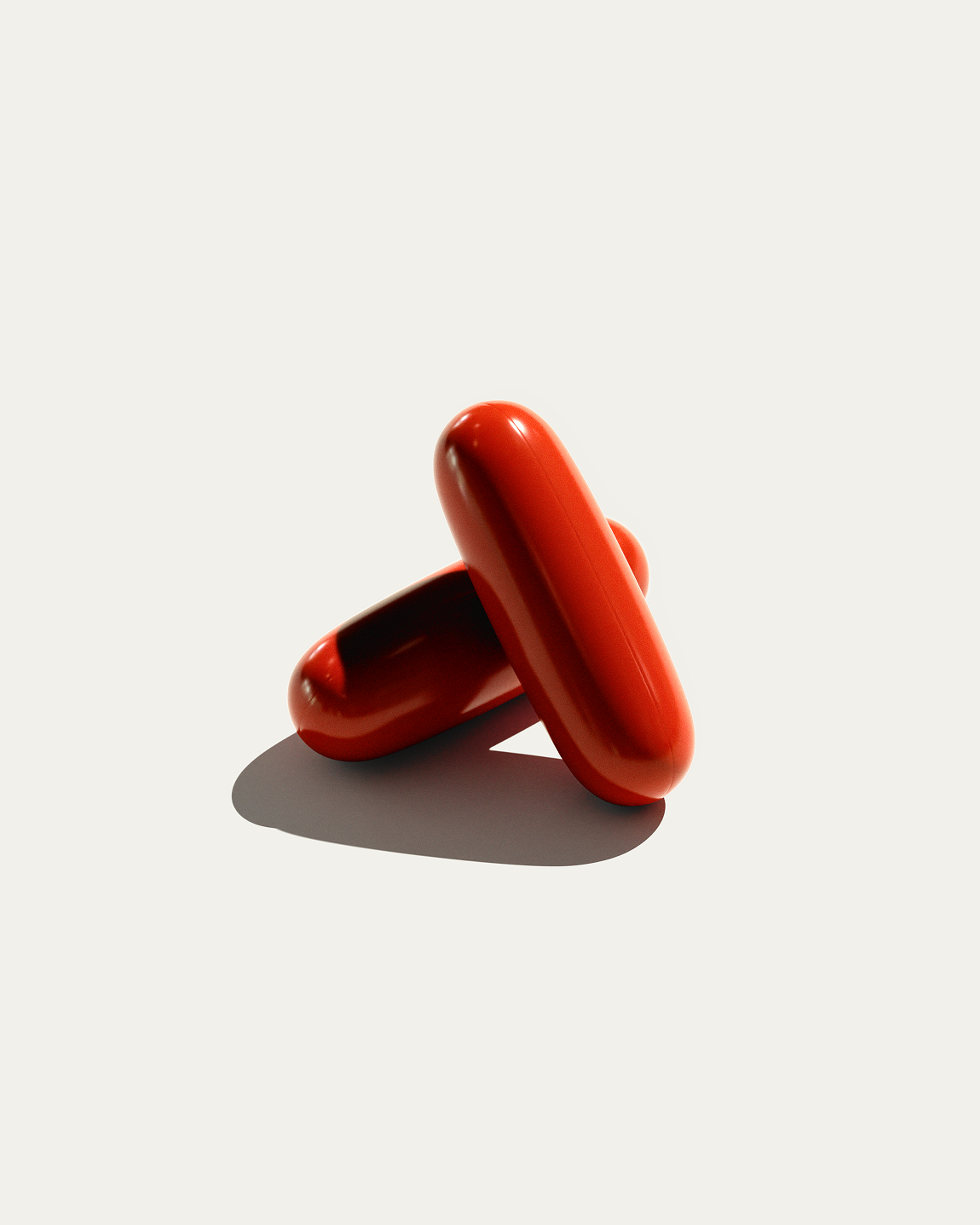
Mitopure Softgels
4.5 · 3905 reviews
The simplest form of Mitopure

Julie Faitg, PhD: Skin Health as a Reflection of Whole-Body Aging
Healthy skin is far more than a cosmetic concern, explains Dr. Julie Faitg, PhD. As a translational scientist at Timeline, who specializes in mitochondrial health and biology, she’s aptly aware of the way mitochondria play a role in skin longevity. “As we age, mitochondrial efficiency in skin cells declines, slowing repair and weakening the skin barrier,” she explains. “This makes skin more vulnerable to oxidative stress, delays wound healing, and increases susceptibility to infections.” These visible signs of aging often reflect deeper changes in the body, including the build-up of senescent cells that drive chronic inflammation, a process known as inflammaging.
She emphasizes that skin is a vital organ that plays a central role in whole-body health. “If you think of the skin as your body's first line of defense, when it loses its resilience, it not only compromises local skin health but can also affect your body’s ability to maintain homeostasis and immune surveillance. Essentially, the health of your skin can reflect and even drive the aging process of other organ systems.”
Her recommendation for supporting healthy skin aging:
- Nourish and hydrate to strengthen the skin barrier and enhance skin strength and flexibility.
- Prevent damage by protecting against UV radiation every day.
- Regenerate and repair with ingredients that target cellular health, such as Urolithin A in Mitopure® topical cream.
“Unlike most skincare products that focus only on the surface, Mitopure® works at the cellular level to improve mitochondrial function and energy production,” Dr. Faitg says. “This helps skin regenerate and repair from within, supporting a healthier, more resilient barrier.”
Backed by Timeline’s research, Mitopure® topical products have been shown to rejuvenate skin cells by enhancing mitochondrial performance. By targeting skin health at its foundation, they offer a science-backed approach to keeping skin vibrant and strong at any age.
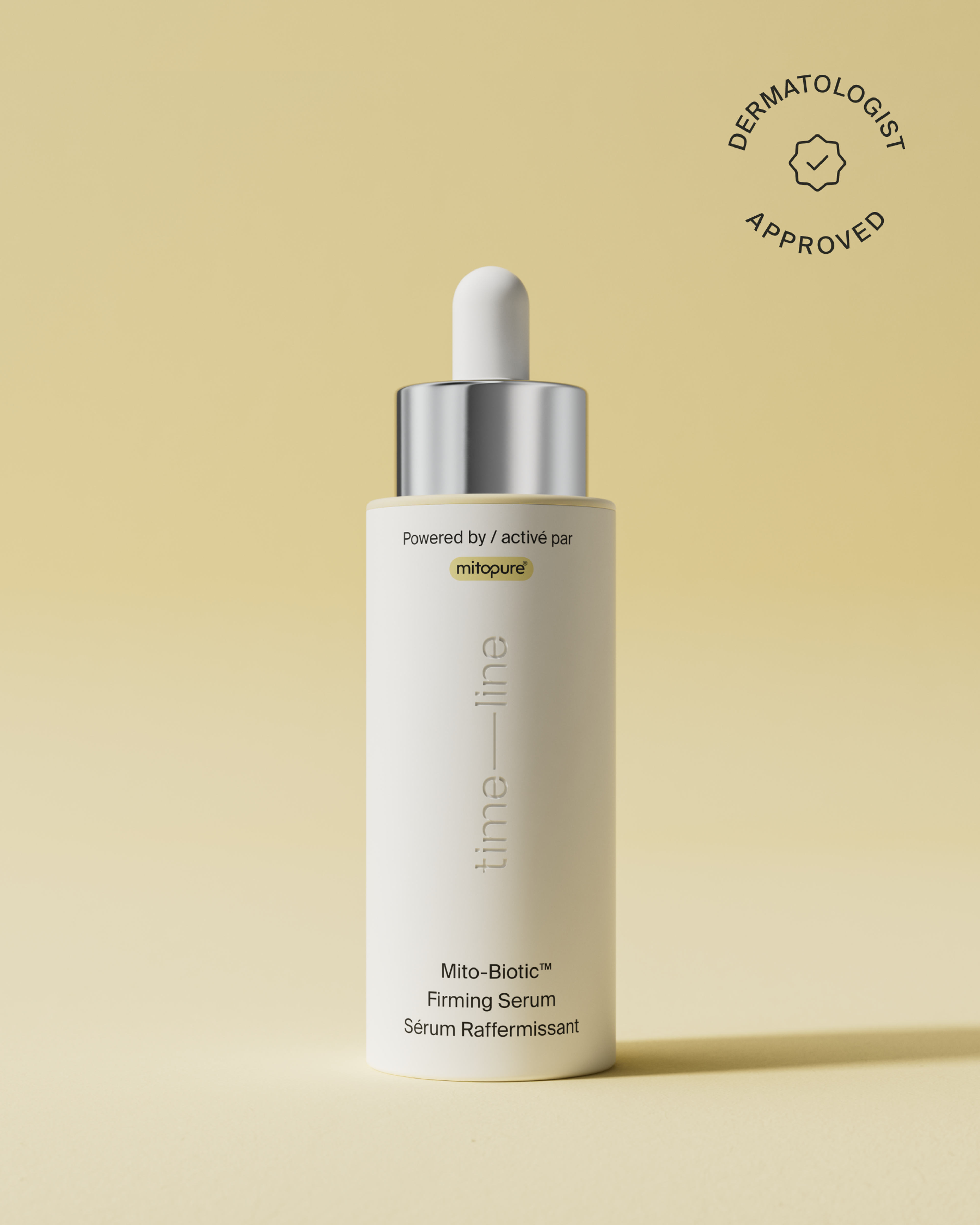
Mitopure Firming Serum
4.8 · 1464 reviews
Award-winning bioactive formula for renewal

Cynthia Thurlow: Gut Health as the Gateway to Longevity
The gut microbiome is a powerful driver of health at every age. Cynthia Thurlow, NP, a nurse practitioner, women’s health expert, and bestselling author, highlights how the gut is intricately linked to the way we age.
“The gut microbiome is a dynamic community of bacteria living and working within the digestive system, performing vital functions for the body,” she explains. These microbes are involved in almost every aspect of your health, from breaking down food and absorbing nutrients to supporting your immune system. When your gut is balanced, your body functions smoothly. But when it is out of balance, it can lead to issues like digestive problems, weakened immunity, and even brain fog.
As we age, Cynthia notes, “the microbiome begins to shift, especially during hormonal changes like perimenopause and menopause for women and andropause for men. One of the key changes we see is in the balance of certain keystone bacteria like Akkermansia and Bifidobacterium. When these bacteria become imbalanced, it can lead to a condition known as dysbiosis, where there’s a disruption between beneficial and non-beneficial bacteria. This dysbiosis can set the stage for chronic inflammation—what we sometimes refer to as “'inflammaging”—as well as increased small intestinal hyperpermeability, or leaky gut.”
Her recommendations for supporting a healthy gut microbiome:
- Eat a diverse, plant and fiber-rich diet to feed beneficial bacteria. Try to incorporate 30 different plant foods a week
- Include fermented foods such as yogurt, kefir, sauerkraut, and kimchi to maintain a healthy microbiome.
- Limit ultra-processed foods and added sugars that can disrupt microbial balance, and when possible, choose organic foods.
Cynthia also recommends taking Mitopure. Research shows that most people do not have the right gut microbes to produce meaningful amounts of Urolithin A. Even for those who do, you would need to drink six cups of pomegranate juice every day to match the benefits of a single 500 mg serving of Mitopure.[2]

Anurag Singh, MD, PhD: Strengthening the Immune System for Longevity
Recent research suggests that the health of our brain and immune system may be two of the most important indicators of how well we are aging.[3] Dr. Anurag Singh, MD, PhD, and Chief Medical Officer at Timeline, explains what happens during this process of immune aging, also known as immunosenescence.
“As we get older, our immune system starts to change, and not always in ways we’d like. Immune aging, or immunosenescence, is the gradual decline of the immune system beginning in early adulthood, influenced by several key factors: inflammaging, thymic involution, and the health of mitochondria in immune cells.”
He describes this shift as a gradual slowdown. “We produce fewer new immune cells, including T-cells and B-cells, which hunt down and eliminate harmful invaders like viruses and bacteria. As these youthful T-cells (like CD8 naive T-cells) decline, our immune defenses aren’t as strong, making us more prone to infections and disease, taking longer to recover, having a lower response to vaccines, and facing a higher risk of autoimmune and other health issues.”
“But it’s not just a matter of having fewer cells; it’s also about the quality of the ones we do have,” Dr. Singh explains. He notes that immune aging is also closely tied to chronic, low-grade inflammation that comes with aging, a process known as inflammaging.
His recommendations for supporting immune health as we age:
- Eat a balanced diet rich in immune-boosting foods such as citrus fruits, berries, dark leafy greens, and spices like ginger.
- Incorporate fermented foods like yogurt and kefir to strengthen the gut-immune connection.
- Exercise regularly, with moderate activity most days and strength training to help lower inflammation.
- Prioritize restorative sleep and stress management.
One of the most promising approaches is Mitopure. “One standout is Mitopure®, which has shown promising results in our recent MitoImmune study, an unprecedented intervention-based assessment of immune aging. The study found that taking 1000 mgs of Mitopure® increased the number and quality of youthful T-cells — those vital defenders against infections and age-related diseases — and reduced markers of chronic inflammation, or ‘inflammaging.’”
Thomas DeLauer: Practical Strategies for Mitochondrial Health
Thomas DeLauer, a health educator and longevity coach known for making complex science accessible to all, believes that small, intentional choices can have a big impact on how our cells and mitochondria age.
Thomas emphasizes that mitochondria are far more than simple energy factories. “It’s not just the powerhouse, it’s a quantum engine that creates energy from protons tunneling,” he explains. “The healthy metabolism just helps this quantum machine run smoother.”
He also highlights that mitochondria can signal in surprising ways. “Your mitochondria emit light. They’re called bio-photons and they’re nano-flashes of light that come from the energy manufacturing process.[4] These little bits of light actually act as photosynthetic signals for the rest of our body.”
As research evolves, Thomas believes mitochondria will be central to how we understand aging itself. “We are just now beginning to understand that the mitochondria are more than just an energy factory, and we’re starting to learn that they might just be the hallmark of everything in our body.” For him, mitochondrial health is not only vital for everyday energy and performance, it is also a cornerstone of longevity.
Thomas’s top 5 longevity tips:
- Occasional fasted training helps mitochondria adapt and use fuel more efficiently.
- Build muscle (start early, but it’s never too late) to create a metabolic buffer against age-related decline.
- Zone 5 training stresses mitochondria in unique ways that boost adaptability.
- Intra-workout carbohydrates can improve glucose use without spiking insulin.
- Myofascial release supports movement, recovery, and overall well-being.
Alongside these lifestyle strategies, Thomas also emphasizes targeted supplementation, including Mitopure, to support mitochondrial health and promote longevity.
Wrapping Up: Celebrating Longevity Month Every Day
As our experts remind us, longevity is not just about adding years to life but about adding life to years. Muscle, skin, gut, and immune health each play a vital role in how well we age, and together they reflect the power of caring for our bodies from the inside out. The small, consistent choices we make every day add up to create a strong foundation for lasting vitality.
At Timeline, we believe aging is something to celebrate, not fear. By focusing on cellular and mitochondrial health with the support of Mitopure, you can give your cells the energy they need to help you live better for longer.
This Longevity Month, we invite you to take part in building habits that support your whole-body health, discover new ways to strengthen your resilience, and embrace aging as a sign of a life well lived.
Authors

Written by
Director Science Communications

Reviewed by
Lead Regulatory Affairs & Scientific Manager Alliances at Timeline
References
- ↑
Singh, Anurag et al. “Urolithin A improves muscle strength, exercise performance, and biomarkers of mitochondrial health in a randomized trial in middle-aged adults.” Cell reports. Medicine vol. 3,5 (2022): 100633. doi:10.1016/j.xcrm.2022.100633
- ↑
Singh, A., D’Amico, D., Andreux, P.A. et al. Direct supplementation with Urolithin A overcomes limitations of dietary exposure and gut microbiome variability in healthy adults to achieve consistent levels across the population. Eur J Clin Nutr 76, 297–308 (2022). https://doi.org/10.1038/s41430-021-00950-1 (https://www.google.com/url?q=https://doi.org/10.1038/s41430-021-00950-1&sa=D&source=docs&ust=1756916471889977&usg=AOvVaw3atsmydIJjcOq8wJuK5e-K)
- ↑
Recent research suggests that the health of our brain and immune system may be two of the most important indicators of how well we are aging.
- ↑
Kobayashi, K., Okabe, H., Kawano, S., Hidaka, Y., & Hara, K. (2014). Biophoton Emission Induced by Heat Shock. PLoS ONE, 9. https://doi.org/10.1371/journal.pone.0105700 (https://www.google.com/url?q=https://doi.org/10.1371/journal.pone.0105700&sa=D&source=docs&ust=1756916471892019&usg=AOvVaw1nDxnb52D0NqdRLcn5TvmS).
